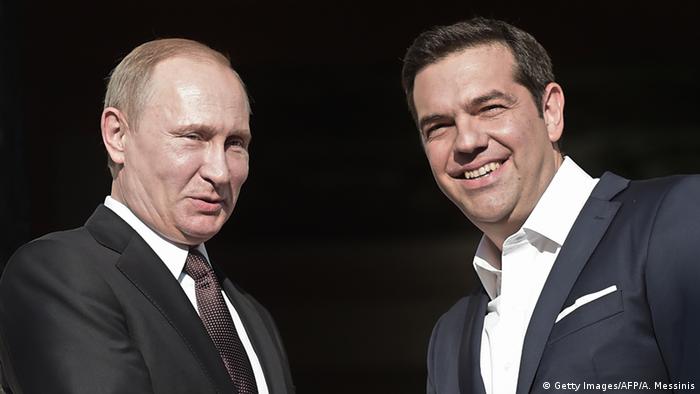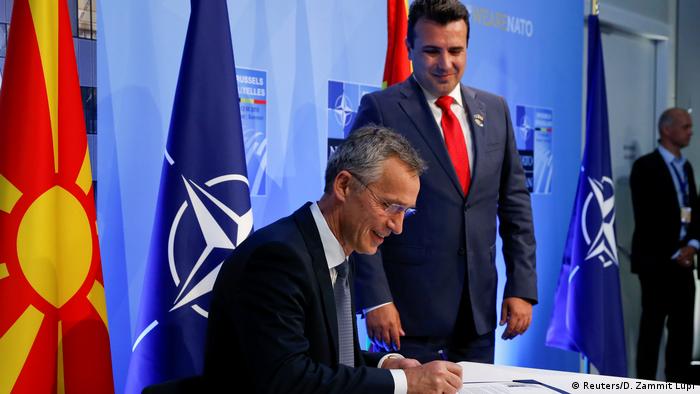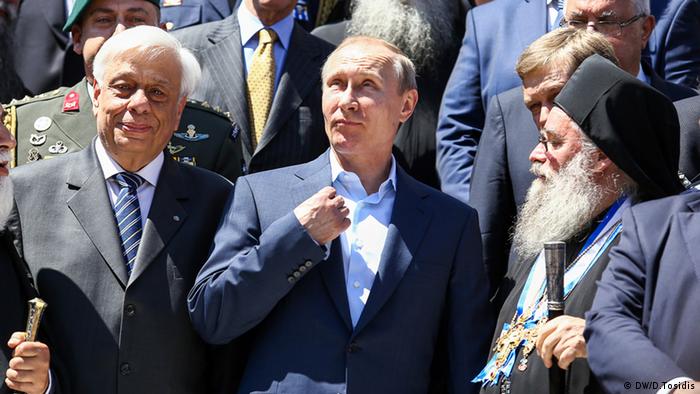On Friday (7.12.) it is expected, Greece’s Prime Minister Alexis Tsipras to visit Russia. Considerable discussion is needed, experts say.

Last summer, the bilateral relations to a low point reached: Greece, had denied two Russian diplomats, the entry; in return, Moscow had two Greek diplomats. Background the settlement of the long-standing name dispute over “Macedonia”. The Athenian Ministry of foreign Affairs had to suggest at this time, the designated diplomats had tried to prevent the officials to bribe, to move closer to the neighboring country. Subsequently, Russia’s chief diplomat Sergei Lavrov had a planned Greece-visit short-term burst. A little later, the Greek had to resign as Minister of foreign Affairs Nikos Kotzias, and his office now heads to Tsipras personally. Rise to a rapprochement with the Kremlin?
A political scientist, Thanos Veremis is skeptical: “the relationship between Greece and Russia it is bad, because Athens is in favour of the agreement in order Macedonia to continue”, says the expert in an interview with DW. Moscow wanted to hold the Northern neighbor of Greece, of Western influence. It’ll stay that way – regardless of who leads the Ministry of foreign Affairs in Athens. A rapprochement with the Kremlin under these circumstances, it is difficult to believe Veremis. “Currently, Tsipras relies completely on the U.S. map, and that is understandable from his point of view. In it, he sees his future – if he has any future at all,” explained the political scientist.
The turning point of economic realism
Gone are the times appear as the left-led government in Athens at the height of the debt crisis after Moscow looked, and of all the EU partners to the “party line” calls. During the inaugural visit in Moscow in April 2015, Tsipras has had to accept, after all, that the Kremlin “in-depth economic relations” in views, but no financial assistance to the crisis-ridden Mediterranean country. “The Greek side has not asked us for help,” said then-Russian President Vladimir Putin. The more the Kremlin chief was interested, however, for close cooperation in the field of energy. Even then, negotiated by Putin and Tsipras about Greece’s participation in the gas pipeline, Turkish Stream, which will deliver Russian Gas through the Black sea to Europe. Also this Friday, the topic is on the Agenda.

Thorn in the Russian’s eye: Macedonia receives in July 2018, the invitation to Nato accession talks
From the Greek perspective, Turkish Stream to be a very interesting project, says Thanos Dokos, head of the Athens Think-tank ELIAMEP. However, “Greece will participate only if the EU and the US give their consent,” the policy scientist to the DW. Whether it happens is questionable, especially since the US is pursuing its own energy policy in the Region to deliver Gas to southeastern Europe via the Northern Greek port of Alexandroupolis, says Dokos.
For additional complications in the Eastern Mediterranean and Turkish threats against Cyprus, due to the planned Gas and Oil production to ensure the East coast of the divided island. According to information of the left-wing “newspaper of the editors”want to Tsipras and Putin speak during their Meeting on Friday at noon about “the developments in the Eastern Mediterranean”. Political scientist Veremis believes that it is in the interest of Greece, and the Western powers in the energy policy debate, and on the contradictions in Turkish politics. “It can’t be, that a NATO country such as Turkey on the one hand, Russian energy resources and on the other hand, Western energy company, the rights denied, to search off the coast of Cyprus for Gas.”
Crisis of Orthodoxy
For all their differences, it is expected that Tsipras and his Russian hosts a number of bilateral trade and cultural agreements. In addition, the visit offers the opportunity for nice words to share and to summon in a good manner, the Orthodox brotherhood between the two countries. But here, too, threatening trouble: In the Wake of the Ukraine crisis, the government in Kiev is pushing for an independent Orthodox Church independent of Russia. She gets support from the “Ecumenical Patriarch of Constantinople”- the honorary head of the Orthodoxy, with its headquarters in Istanbul, which in turn nurtures a good relationship to Greece. The recently escalated conflict to the Church’s independence of the Ukraine has “contributed significantly to the deterioration of the relations between Athens and Moscow”, reports the highest-circulation Athens daily “Ta Nea”.

Orthodox brothers: Putin visited in may 2016, the Greek monastery of mount Athos
In the opinion of the political scientist Veremis, the situation is more complicated than at first glance. The Ecumenical Patriarchate has its own Agenda and is not necessarily identical with the Agenda of the Church of Greece or even the government in Athens”, he says. The topic should come up in Moscow, as expected, to the language, then the Greek government is not going to indicate probably the fact that she has to interfere with the competence in the Affairs of the Patriarchate.